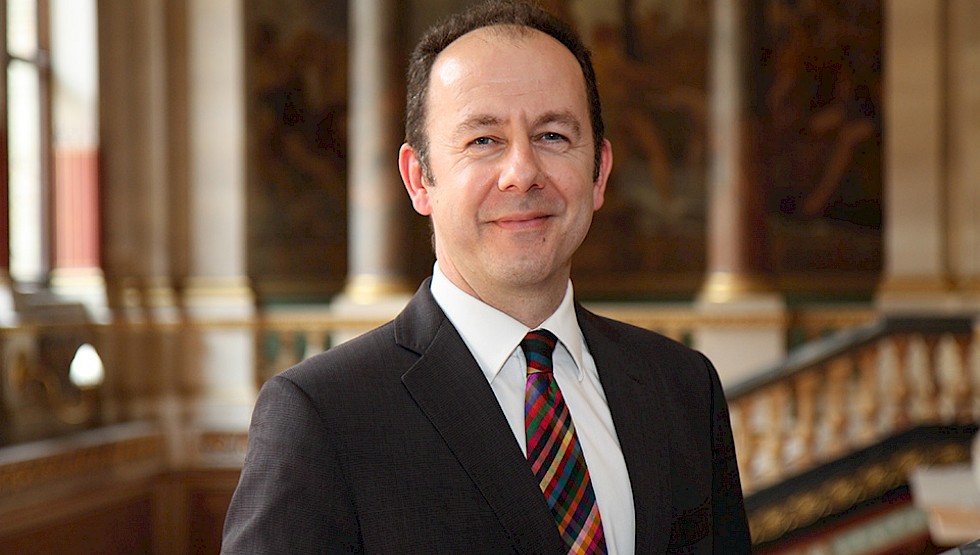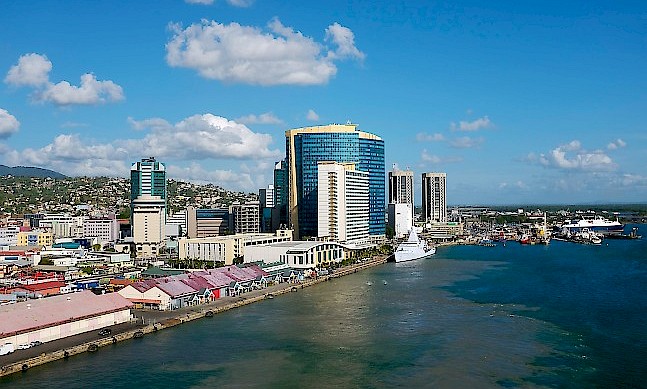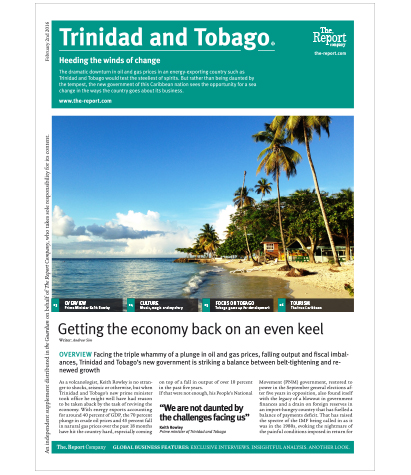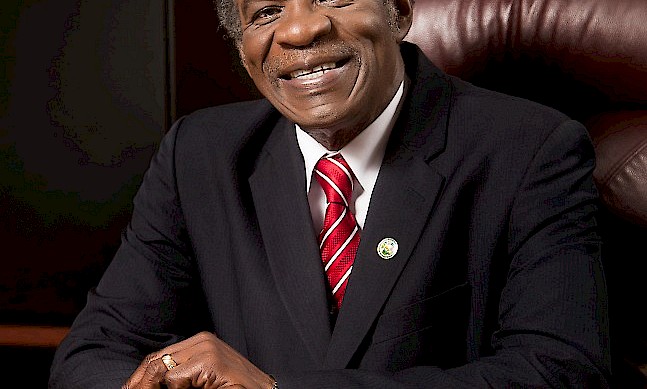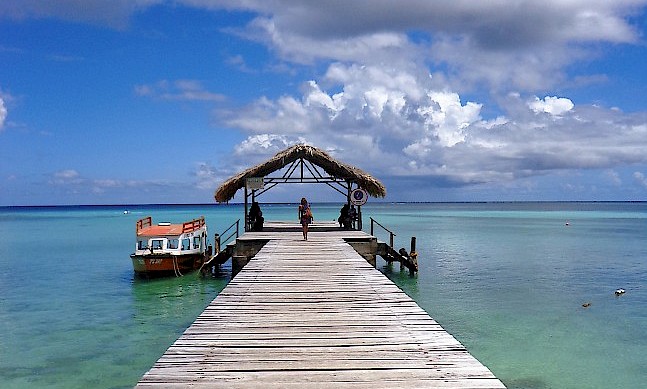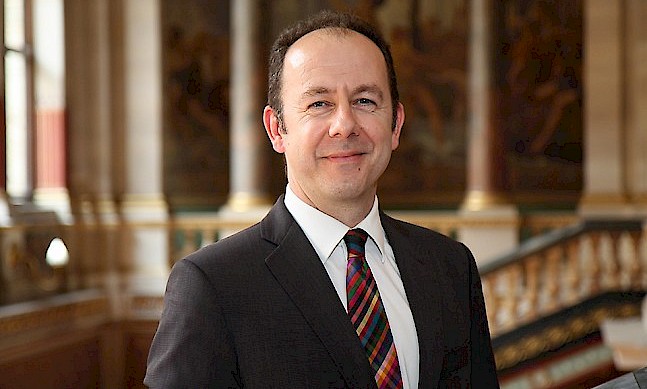Tim Stew MBE was appointed High Commissioner in July 2015, and has wasted no time in getting to work building on the strong and historic ties between the two countries. He spoke to The Report Company about where the key intersections of interest lie.
The Report Company: What effect has the recent change of government had on the country?
Tim Stew: After a long time working in the Middle East, it is refreshing to be in a place where the elections were conducted as they were, with a peaceful transfer of power. That is something we should not underestimate, a shared value fundamental to democracy. As a partner with Trinidad and Tobago, the fact we have such shared values is really important to us.
My task for the next four years, as I have been telling people from day one, is to develop a progressive partnership with the country, its government and people. I’m not here to simply maintain a bilateral relationship, but rather to develop and grow it. The coincidence of new governments being elected in both the UK and Trinidad and Tobago in 2015 offers the chance to build a truly forward-looking partnership over the four years I am here. The voters in this country clearly saw the need for a change. The government is promising that and of course will need to deliver.
TRC: What are the main pillars of the international reputation of Trinidad and Tobago?
TS: No doubt the government is thinking hard about this. I have three Ps that guide Britain’s support here: the prosperity between us, growing our mutual prosperity; then, protection - which covers the full range of British investments, as well as wider security issues; and the third is profile. By profile, I mean three things. The first is people understanding in Trinidad and Tobago what Britain is here to do. The second is about making sure that Trinidad and Tobago is understood back in the UK. The final part is about using our relationship to raise the profile locally of issues which are particularly important.
In terms of Trinidad and Tobago’s international profile, clearly it plays a significant role in energy. Their tourism industry is an area which no doubt the new government is considering to help diversify the country’s economy. And then there are older historic industries which can be given new life. For example there is a fascinating project underway, a British-Trinidad venture in chocolate. A new cocoa company recently established, with a factory in country producing top end chocolate products, hitting the shelves of Selfridges in recent weeks. It is a small venture but it is a really interesting example of the sort of thing that I am driving for here. We have strong historical trade links, but there are industries which have over time fallen down because of the supremacy of oil and gas – there is potential to regenerate smaller scale industries like cocoa. Instead of simply exporting the beans by themselves, as they used to, this company is adding value by turning them into high end products in Trinidad and Tobago for sale through the UK to select overseas markets, reflecting the fine quality of Trinidad and Tobago’s beans. It is a really good example of how you can take an old industry, add value to it and turn it into something new for the future.
TRC: What role can the UK play in Trinidad and Tobago’s development path?
TS: We listen to what people want here. We are not here to impose an agenda. We are looking out for UK interests of course, but in ways which are not exclusive with Trinidad’s interests. Where we will have greatest success is in promoting British interests and British business which themselves benefit this country.
I recently sat in front of a group of 40 businessmen and we talked about prosperity, but the first thing they wanted to talk about was security, crime and justice. We offer support to the government here in this area because it impacts citizens of both our countries. Looking at the judicial system, which clearly is very strained at the moment, we share common practice and we have our own experience which might help them tackle some of the challenges they are facing. Security is clearly a national preoccupation, as it should be, it being a fundamental function of any state to be able to provide security to its citizens. My personal experience so far has been that this is a wonderful country to live in. But clearly there are serious pockets of criminal activity, resulting in a murder rate 40 times that in my country. So it’s important to help Trinidad and Tobago with crime and justice issues as well as with prosperity. Of course, the two are interrelated. We don’t want the crime rate to deter trade and investment between our countries.
“What I sense here is optimism. The feeling is that there is strong leadership in place, with a strategic vision”Tweet This
TRC: Where do opportunities exist for British investors to participate in the economy of Trinidad and Tobago?
TS: There is a good deal of interest from the UK, of course in oil and gas with British companies being major players in this country’s energy output, so that is a major investment. We have plenty of expertise in security and defence which we are happy to make available, and more widely, there are British companies which are interested in doing more business here. I want to see UK construction firms here doing the building that needs to be done, with the follow up services and maintenance they offer. The new government is wisely and soundly reviewing capital expenditure projects, looking carefully at what is feasible and realistic and what’s not. They will want to take the time to ensure the capital projects they pursue are right and offer quality and value for money. That is where British companies can come in.
TRC: What is the investment landscape like in the energy sector?
TS: It is a tough time for everybody in the industry, of course, not just in this country. The last months have been difficult and so the Trinidad and Tobago government is sensibly basing its budget on a realistic price. That is what we have seen from the interim budget announced in October 2015. It is going to be a tough time ahead, but at the same time, you cannot stand still in this industry. There is deepwater exploration being pursued, there are British companies operating on land, there is further work underway on development of cross-border gas fields. Meanwhile it is going to be a leaner time for all, but that doesn’t mean the industry should stand still, it has to look to the future.
TRC: What would be your message to UK investors looking at Trinidad and Tobago?
TS: We have seen from the new government a determination to deliver what the people have been asking for. Accountability and transparency are very much on people’s minds, as is a settling of the crime situation. What I sense here is optimism. The feeling so far is that there is strong leadership in place, with a strategic vision. The future of the country should be good.
